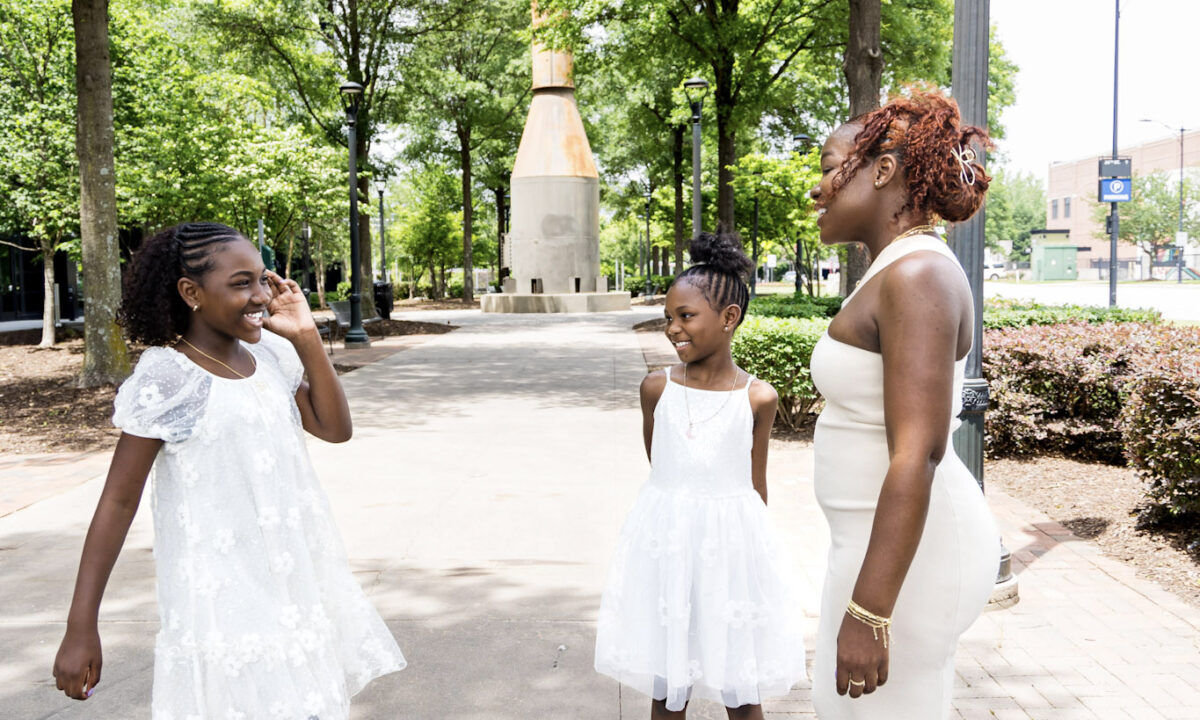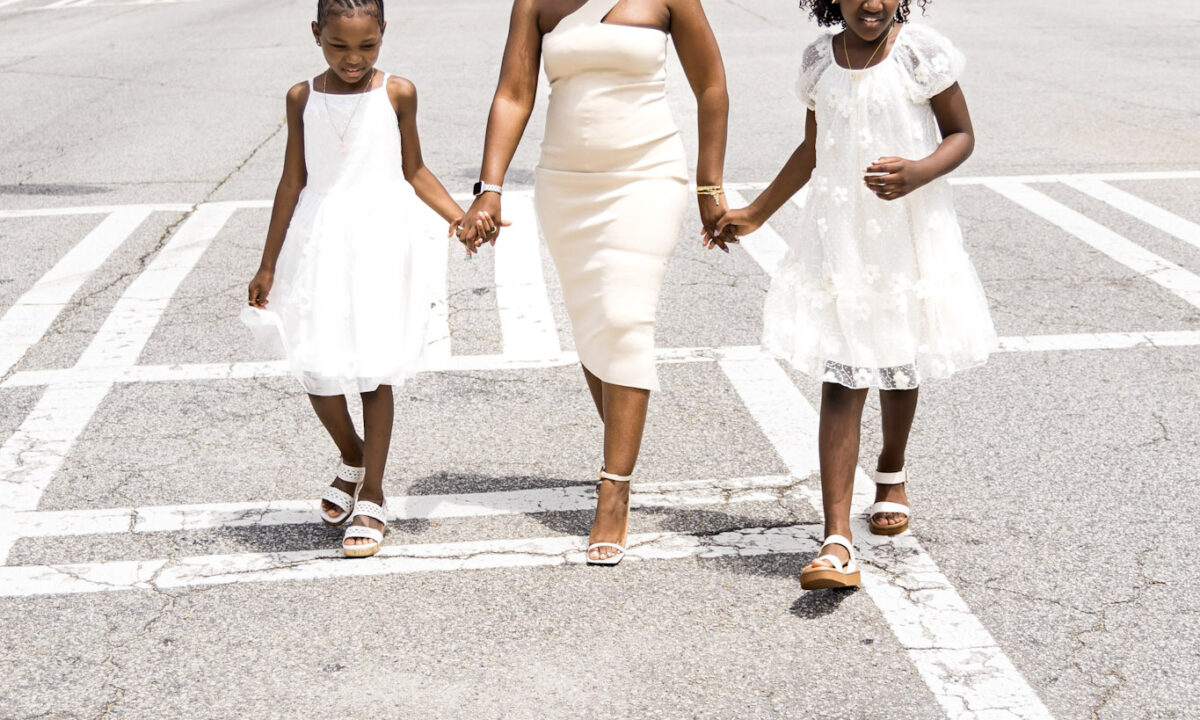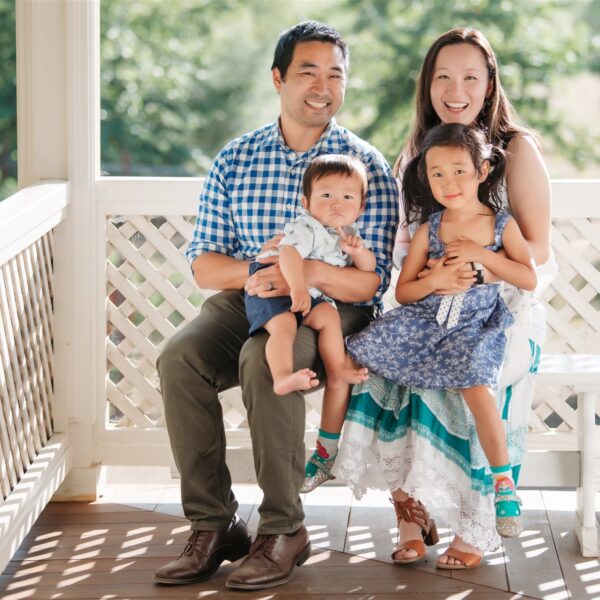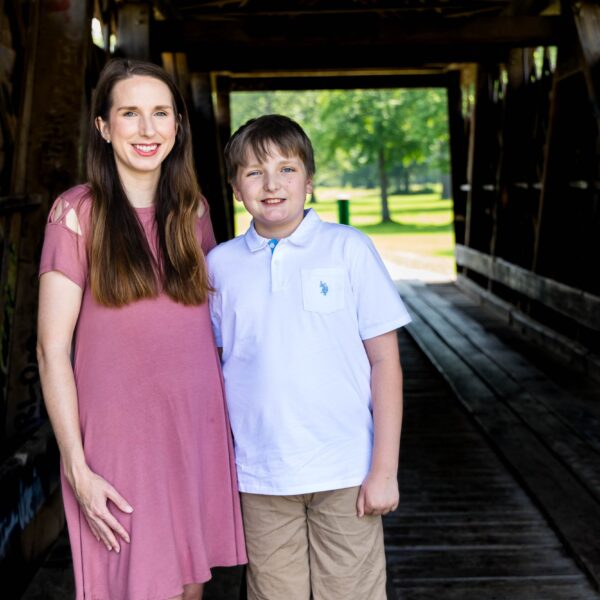Building a new life from the ground up
MEMBER STORY
Meet Princess.

Every morning at 6 a.m., Princess rises to start the day—not just for herself, but for her two daughters, Midra and McKenzie. After getting them to school, she might head to the gym for a quick workout—or she might retreat to bed for a rare moment of silence. Then she logs on to her remote job as community outreach specialist for a major healthcare provider, balancing full-time work with full-time parenting and graduate school.
Originally from New Jersey, Princess now lives just outside Atlanta and is just days away from earning her Master’s in Healthcare Administration from Western Governors University. It’s an achievement she fought hard for—while raising children alone, rebuilding her financial life.
Pandemic Setbacks and the Push Forward
Before the pandemic, Princess had a stable job in healthcare and a reliable income. But when her department was let go and her teams’ positions were eliminated, her financial stability began to unravel. Over a year of unemployment and short-term contract work followed, draining her savings and increasing her credit card debt.
“I was so used to having a job or two. Then suddenly having no job and living off whatever I had—it was hard. I needed stability. I felt helpless.” Princess is not alone. Nearly a quarter (24%) of GA-based SaverLife members reported that they had experienced a period of unemployment in the past 12 months. Seventy-eight percent of the GA-based SL members who experienced a period of unemployment in the past year said it was “somewhat difficult” or “very difficult” to manage the change in income.
She eventually took a job at an auto insurance company, but it came with a steep pay cut. That experience clarified her long-term goals: to reenter healthcare with the qualifications and confidence to grow her career. Despite the challenges, she enrolled in graduate school. “After my first term, I thought, ‘What did I just put myself into?’” she recalled. But with the help of a school-assigned mentor—and her daughters keeping her accountable—she kept going. Many Georgia-based SaverLife members aspire to additional education. 43% who reported that they wanted to save for long-term goals specified that this included pursuing additional education and career training.
Good Debt vs. Bad Debt
Princess now sees debt in two categories: strategic and necessary debt, like her student loans, and avoidable debt, like credit card balances or buy now, pay later services. “If I’m going to have debt, I want it to make sense,” she said.
She’s paid off many old debts, deleted tempting shopping apps, and adopted a more intentional approach to spending. “I ask myself now—do we really need this right now? Before, I would just swipe. Now I move money around and try to use what I have on hand.”
Princess uses bonuses and tax refunds to pay down balances and avoids relying on credit unless absolutely necessary. The improvements in her habits—like paying bills early and resisting impulse purchases—have motivated her to stay the course. “Last month I paid my car note weeks in advance. When’s the last time I’ve done that? I love it here. I love this new me.” This is quite an achievement for Princess to bring control to her debt. Just 46% of GA-based SL members reported that they had a manageable amount of debt.
A Personal Journey of Financial Discipline
Princess credits her change in mindset for her personal growth and financial health growth. While she once participated in financial counseling to explore homeownership, her transformation has come largely from experience and self-discipline. “I’ve had to advocate for myself against myself,” she said. “In this consumer world, you have to get out of that mindset that you always need to buy something.”
She remembers how difficult it was when her savings were low and work was scarce. The stress of providing for her children with no reliable income left her emotionally drained. “I want stability. I want financial stability. I need a reliable paycheck,” she said.
Investing in Herself—and Her Daughters
For Princess, going back to school wasn’t just about landing a better job—it was a strategic step toward long-term financial security. “I needed to feel like I was prepared if life knocked me down again,” she said.
Balancing full-time work, school, and parenting has meant making sacrifices, but her focus has never wavered. She wants to build a stable future—not just for herself, but for her daughters. That means clearing unnecessary debt, maintaining a strong credit score, and eventually buying a home they can call their own.
She’s also found motivation in the Black women leaders at her company who have carved out paths to success. “Seeing other people like me is so inspiring. That encourages me to keep going,” she said. Their example has reinforced her belief that financial growth and leadership are within reach—and worth the discipline it takes to get there.
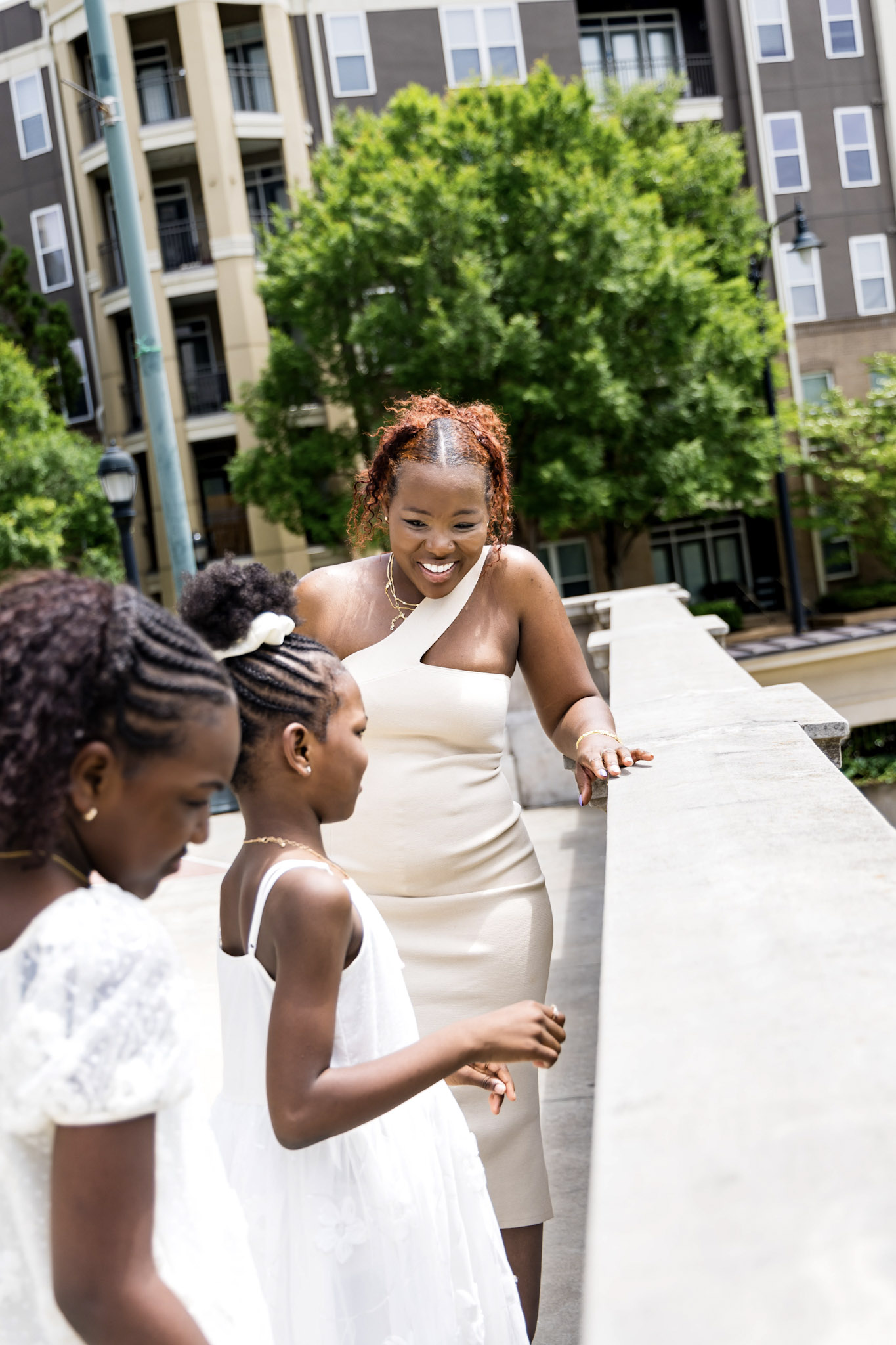
Looking Ahead: A Home and a Future
Homeownership is on the horizon, but Princess is taking her time. “I want to make sure that when I own a home, I can afford to fix it. I don’t want to be house poor,” she said. “I want to afford a home and a comfortable lifestyle with my children.”
Her five-year plan includes purchasing that home and finding a higher-paying role within healthcare—perhaps in quality assurance or finance, thanks to her surprising enjoyment of data and numbers during grad school. “This program really opened my eyes. I used to be afraid of numbers. Now I realize I actually enjoy it.”
A New Chapter Begins
As Princess prepares to graduate, she’s focused on what comes next—both personally and financially. She’s planning to explore new career paths, build on the progress she’s made, and continue moving toward her long-term goal of homeownership. For now, she’s proud to be finishing her degree and excited to reclaim time with her daughters. “As soon as school’s over, we’re going to be outside just having fun,” she said.
The journey hasn’t been easy. She’s rebuilt her finances with discipline, cut out unnecessary spending, and focused on shedding “bad debt” like credit cards and buy-now-pay-later balances. What remains—her student loan—is what she considers “good debt,” an investment in herself and her future. Graduation, she said, isn’t just a milestone. It’s proof that the hard choices were worth it.
